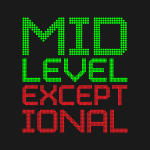CBA Roundtable: The Rookie Scale
Oct 6, 2014; Boston, MA, USA; Boston Celtics guard Avery Bradley (0) drives the ball to the basket against Philadelphia 76ers forward Nerlens Noel (4) in the first half at TD Garden. Boston defeated the 76ers 98-78. Mandatory Credit: David Butler II-USA TODAY Sports
The current NBA system heavily limits the pay of young players primarily through the rookie scale which specifies the salaries of first round picks for their first contract. The Collective Bargaining Agreement lists the amounts for each pick each season it runs and those amounts are locked in (barring a collectively bargained modification) regardless of how the salary cap changes during that time period. With a gigantic new national TV deal, it looks like veteran salaries will outpace the rookie scale even more dramatically in the very near future.
What do you think about the rookie scale?
Jared Dubin (@JADubin5):
As of right now, the rookie scale is set with specific increases that will not come close to reaching the jump the cap is about to make due to the new television rights deal. This means that rookie contracts, currently the best value in the league (non-LeBron/KD division) are about to become even bigger steals.
I’m trying to decide whether it makes sense to keep it that way so as to avoid an NFL-style problem where the number one pick every year instantly becomes the highest-paid player ever, or if it might be more fair to let rookies negotiate contracts more than they currently can. Honestly, it is a bit unfair either way but the most likely result is the rookie scale sticking around. Rookies are not in the union before the are drafted (obviously), so the current players have no incentive to negotiate a better deal for them. In fact, they have the opposite incentive since any money taken away from them is by rule then available to the vets in order for the players to reach their 50-51 percent of revenue.
What I’m saying is, we can come up with as many ideas to change this as we want and it would not matter. The scale is sticking around. The only question is whether it will change enough to make a meaningful difference. The owners will likely want to keep those costs down, and the players will too, so it is possible rookie scale contracts could become even greater values in the next CBA than they are right now.
Daniel Leroux (@DannyLeroux):
I agree with Jared’s core conceit that the rookie scale will be a part of the NBA for the foreseeable future so I see no use in spending much time objecting to it on moral grounds, though I do to be abundantly clear.
To me, the core question with the rookie scale is whether it should be fixed like it and the Mid-Level Exception are under the current Collective Bargaining Agreement or tied to either the cap itself or some other income-based number like BRI. I think connecting the rookie scale amounts with the cap makes the most sense as it would keep pick values somewhat stable as salaries shift with substantially changing revenues. Without it we could see picks become even more valuable and have even more dramatic effects on the choices teams make in the short and long terms.
I should also note that making a firm connection between the cap and the rookie scale could pose some challenges in situations where the cap jumps substantially in a single year. For example, if the league elects not to smooth the revenue bump fueled by the new TV deal (a possibility I think is more likely than most) some players could choose either to wait to declare for an extra year or play hardball after being chosen in the draft to play somewhere else for a season or two to get the more lucrative deal. We would not see either challenge with the imminent cap increase since the CBA comes up for renegotiation after that jump would happen but that scenario warrants consideration nonetheless.
As a partial aside, the league also should consider making substantial increases to D-League salaries because they have a distinct opportunity to improve the quality of the NBDL which could have huge spillover benefits for the NBA if they can keep some of the best American players not in the NBA from going to Europe and potentially even attracting some competitive international talent where NBA scouts can keep a better eye on them.
Bryan Toporek (@btoporek):
What Jared alluded to—namely, the value of rookie deals only increasing with the new TV deal—is the biggest storyline of note here. Any teams with high-end lottery picks over the next two seasons are going to lock in premier talent for severely below-market rates, which, quite frankly, could encourage tankers to continue on unabated, draft lottery changes be damned. (This is Sam Hinkie right now.)
That rookie scale/TV deal clash seems to benefit teams like the Philadelphia 76ers and Boston Celtics who will have guys like Michael Carter-Williams, Nerlens Noel, Joel Embiid, Marcus Smart and James Young still on rookie deals once the 2016-17 cap explosion rolls around. Squads loaded with rookie-scale players will have that much more money to spend in the 2016 offseason (when the cap could skyrocket past $80 million), before turning their attention to signing their own guys to extensions. However, the rookie scale could hurt teams with draft-and-stashers (like Dario Saric), as those players now have little incentive to come over to the NBA before seeing how the new CBA affects their prospective salaries.
I am fully in agreement with both Jared and Danny that the rookie scale is here to stay in some capacity, even after the new CBA (presumably) rolls around in 2017. Neither the league nor players’ union has much incentive to allow rookies to negotiate their own contracts; the players’ union will want a higher percentage of money allocated to veterans, while team owners won’t willingly give up the rights to locking up rookies for four years on relatively cheap deals. Although I like Danny’s idea of tying rookie-scale contracts (and contract extensions) to a percentage of the salary cap ala max contracts, the potential problems he raised make that seem like a non-starter for both the league and the players’ union.
The rookie scale cannot stay as is, however, as the scale amounts were determined using the old TV deal as the BRI basis. (To wit: The No. 1 overall pick in 2020 will earn $5.65 million as a rookie when the cap could well be over $100 million.) If anything, the league and union should both agree that the scale needs to be adjusted upward to a new set amount for each season but not to the point where a rookie will earn more than a player who signs a non-taxpayer mid-level exception that respective year.
Lastly, I am fine with teams having control of rookie-scale players for four years. Without that advantage, large-market teams would only further bury their small-market brethren. The league should not encourage tanking but removing long-term deals for rookies would strip much of the value from the draft lottery. There is no need to create additional problems when a simple solution—raising the rookie scale to some yet-to-be-agreed-upon set amount—is within arm’s reach.
Thank you so much to the roundtable participants and readers alike. If you would like to continue the conversation, feel free to write a comment, send us an e-mail at midlevelexceptional@gmail.com or reach out on Twitter (@MLExceptional).


